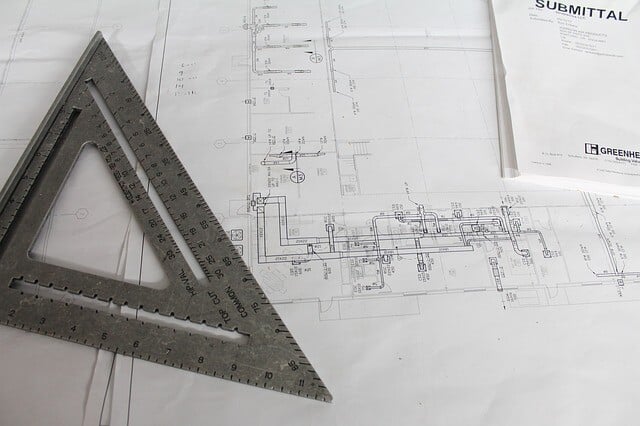A mixed-use property is used for various purposes, including more than just providing a home for residential tenants. These properties may also combine retail, office, or commercial spaces. Proper management accounting and organization are vital to managing such property types to achieve and maintain profitability.
If you own a mixed-use (or multi-use) property, you need to know how to maintain the accounts for residential tenants and the properties used for other purposes while keeping an eye on the key metrics every commercial property manager should be looking at. It is crucial to keep important aspects like utilities and employee payroll separate from property management line items like tenant payments and repairs. Here are four essential accounting tips for multi-use properties to help make the job easier.
Let’s Start with Accounting Basics
You must keep several key records for tax filing and accounting purposes. Here are some of the most important accounting basics—which are more complex than those involved when investing in luxury condos—to remember when dealing with multi-use properties.
- Use a program or an app to help you keep clear digital copies of all receipts. Some of these should include residential and commercial tenant payments, the cost of repairs and utilities, and more.
- Look for online rent roll collection options that sync with your financial tracking software. This will help automate and separate payments by type.
- Track late payments and use the proper collection methods to keep your books current.
- Keep different accounts for each commercial party property type to separate the commercial, retail, and residential aspects of each property. This will help track important financial information based on various categories.
- Store all financial statements in a database or spreadsheet for tax time. Check them each month to make sure all payments are cleared. This also helps keep your balance sheets accurate.
- Learn the difference between accrual vs cash accounting: cash accounting occurs whenever you pay or receive money; accrual accounting happens as soon as a bill is sent or received, regardless of when the payment clears.
Tips for Managing Accounting for Mixed-Use Properties
When managing the accounting for multi-use properties, following a few basic practices is essential to keep your accounts organized and correct—much like a keyless entry system is essential to maintaining the security of your property. First, constantly monitor the occupancy rate versus income to ensure you get the correct revenue. Next, you’ll need to track all of your costs carefully. This includes everything from repairs and cleaning to building maintenance, utility, and any marketing costs, if applicable. You’ll want to look at your total monthly expenses versus rental income to determine the best ways to budget.
It’s also essential to ensure that you allocate shared expenses. For example, if your retail tenant pays part of the property taxes on the building and you pay the rest, separating the two is vital so that you don’t overpay or miss out on tracking those shared expenses. When you allocate costs, it’s much easier to see where your money is going, so you can adjust if or when needed.
Always keep your property rental income and expenses separate based on use. Set up a chart of accounts and separate each item based on each unique and specific category, such as the cost of cleaning supplies and services, ground maintenance, or rental collection costs.
Software Solutions
The type of commercial real estate software you use (and its features) is integral when accounting for multi-use properties. Look for software specially designed for things like property management and accounting, and then ensure that these two different software types can be integrated. Start with intuitive multi-use property management software with features that best accommodate your unique needs. This may include information like tracking rented vs. vacant units and tenant payments. It should also include easy ways to enter expenses based on each category and type.
The accounting software should allow you to track your income and expenses in real time. Ensure that the software includes excellent customer support to get the help you need when needed. Your property management and accounting software should integrate together, or you can choose a program that melds property management and accounting together into one program. Ultimately, this software should include all the above features, like digital receipts tracking, expense allocation, accounting methods (cash vs. accrual), and more. It should satisfy the needs of a commercial property.
Tax Considerations
Multi-use properties are under strict tax rules, so it’s essential to remember vital tax considerations. Some considerations include the cost of things like your mortgage interest and property taxes, when these items offset any rental income you receive. Always track your expenses carefully and determine which can be used as deductions. Things like real estate and sales tax on each property—not to mention mortgage interest—can be deducted, although the laws vary based on your state. If you do any work out of your multi-use property, you can deduct home office expenses, too.
When filing taxes, it’s also important to know the capitalization rate. This refers to the return rate of your investment property based on the expected annual income. Of course, you’ll also need to take property depreciation into account. This refers to general wear and tear on your property over time and the cost of purchase, maintenance, and improvements. Property depreciation has three main categories: structure value, modifications value, and equipment value.
It’s always best to consult with a tax filing company or accountant for help with deductions and property capitalization and depreciation.
Remember These Accounting Basics
Remember these four helpful accounting tips for your mixed-use property (or properties). From the most fundamental accounting basics to tax considerations and tracking categorized expenses. With the right software and careful planning and monitoring, you can ensure that every penny is accounted for accurately.
Always look for helpful tools like property management and accounting software that integrate so you’re always on top of your financial reports, rental payments, and costs associated with operating your property. Practicing these foundational accounting methods will ensure that your multi-use property continues to be profitable for years.
Manage Accounting with STRATAFOLIO
Choosing the right property accounting software is essential for effective financial management. By grasping the basics—such as monitoring income and operating expenses, as well as preparing for tax obligations—you can enhance your financial oversight and concentrate on expanding your investment portfolio.
If you’re ever uncertain about important terminology or concepts, consider STRATAFOLIO. We integrate with QuickBooks, streamlining the accounting process, making it more efficient. Utilizing software like STRATAFOLIO can simplify your property management tasks and offer valuable insights into the financial status of your properties. Schedule a free demo today to discover how it can grow your commercial property management.








